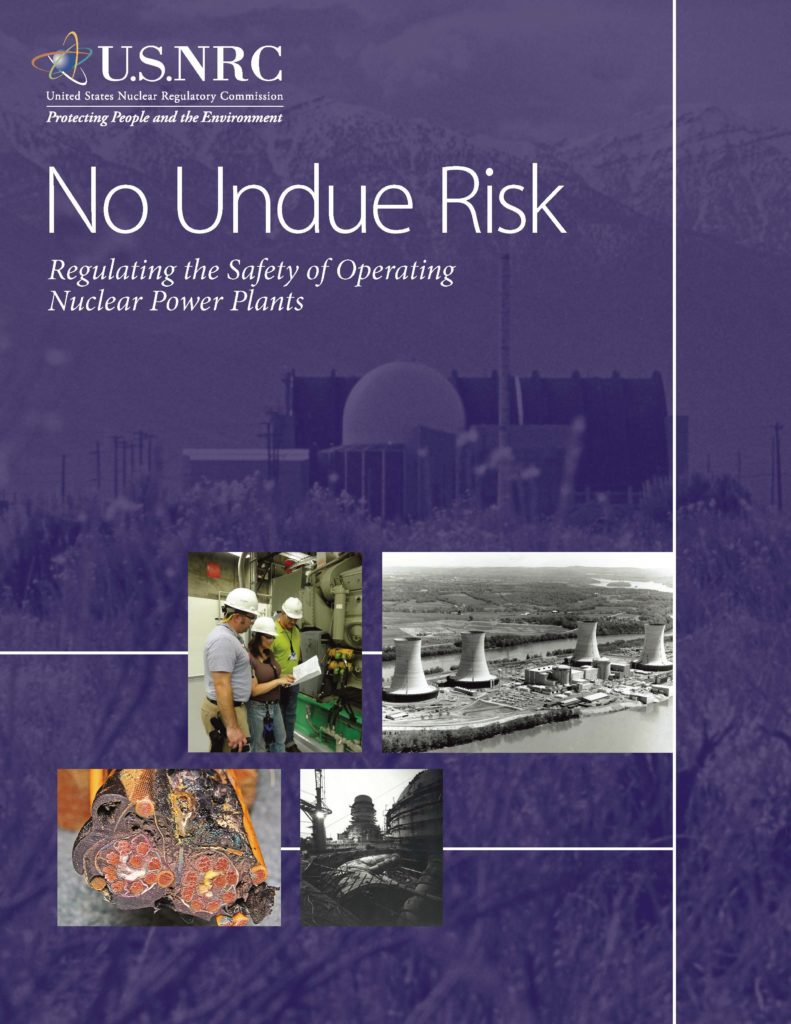Nuclear Energy Activist Toolkit #35
The NRC published “No Undue Risk: Regulating the Safety of Operating Nuclear Power Plants” in June 2014. This 22-page report describes some of the agency’s better accomplishments (e.g., the maintenance rule and the reactor oversight process) and some of its stumbles (the Three Mile Island accident, the Davis-Besse close call, the severe accident policy statement, the license renewal rule, and fire safety).
The maintenance rule was one of the best things the NRC has done. In the mid-1980s, the NRC identified that non-safety-related systems like instrument air and service water could adversely affect safety systems. The NRC also identified that maintenance practices were not always preventing safety margins from being compromised. In addition to addressing these individual problems, the NRC adopted the maintenance rule to fix the programmatic weaknesses that caused the problems.
If you have the time and inclination, read the NRC’s report.
Bottom Line
In the section on the creation of the Nuclear Regulatory Commission, this report discusses the agency’s GSI program. While literally GSI is an acronym for Generic Safety Issues, figuratively it could just as easily mean Geriatric Safety Issues due to their lifetimes. For example, the NRC accepted GSI-191 in September 1996 as a “high priority” safety problem affecting nearly two-thirds of the operating reactors. A mere 18 years later, this “high priority” safety problem remains unresolved at many reactors.
Recognizing but not expeditiously resolving a “high priority” safety problem is an Undue Risk in anyone else’s book.
In the section about anticipated transient without scram (ATWS), this report describes how concerns about the reliability of the reactor automatic shut down systems had been raised by the agency as early as 1973. But the nuclear industry successfully resisted the solutions sought by the agency until 1984. As the report mentions, actual failures of the automatic shut down systems in 1980 at the Browns Ferry nuclear plant in Alabama and in 1982 at the Salem nuclear plant in New Jersey overcame the industry’s stonewalling.
Identifying a potential safety problem but being unable to compel the regulated industry to address it until it happens a couple of times is an Undue Risk in anyone’s book.
The UCS Nuclear Energy Activist Toolkit (NEAT) is a series of post intended to help citizens understand nuclear technology and the Nuclear Regulatory Commission’s processes for overseeing nuclear plant safety.

